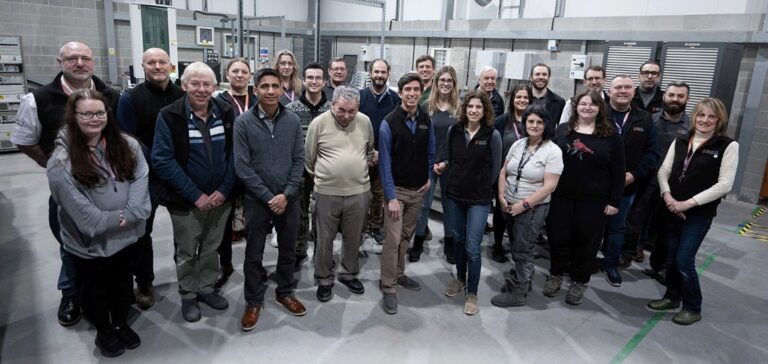US-based Inlyte Energy, a company specialising in stationary storage technologies, has signed a memorandum of understanding with HORIEN Salt Battery Solutions, the world’s leading manufacturer of sodium-metal chloride batteries, to accelerate the industrial scaling of its iron-sodium battery. The strategic agreement combines HORIEN’s manufacturing expertise, built over more than 25 years, with Inlyte’s technological innovations aimed at reducing costs and simplifying the supply chain.
The partnership includes the development of Inlyte’s first US-based facility, named Inlyte Factory 1, scheduled to be operational by 2027. This plant will replicate HORIEN’s current manufacturing operations while incorporating Inlyte’s proven design and cost innovations from its UK-based pilot site. The objective is to facilitate a rapid scale-up of production with reduced operational risk.
A production strategy focused on flexibility and cost control
The battery technology developed by Inlyte uses iron and sodium—two abundant materials—as a cost-effective alternative to lithium-ion batteries for long-duration energy storage. Through collaboration with HORIEN, Inlyte aims to accelerate the commercialisation of this solution in the North American market, supported by proven industrial manufacturing capabilities.
Both companies state that the partnership will ease the rapid deployment of iron-sodium batteries, the components of which can be sourced locally, thereby reducing reliance on global supply chains and critical raw materials.
Strengthened positioning in a growing market
Antonio Baclig, Chief Executive Officer of Inlyte Energy, emphasised that this partnership would “significantly accelerate our ability to deploy large-scale energy storage systems” through access to HORIEN’s manufacturing know-how and established industry relationships. For Giovanni Zola, Chief Executive Officer of HORIEN, the initiative represents a step forward in the global adoption of sodium-metal chloride technology, recognised for its operational reliability and safety.
The decision to locate the first production unit in the United States reflects a broader trend towards industrial reshoring in the energy storage sector, amid increasing demand for flexible solutions to support electrical grids.





















